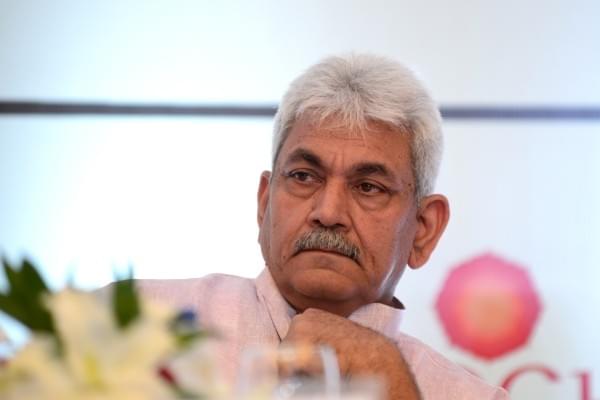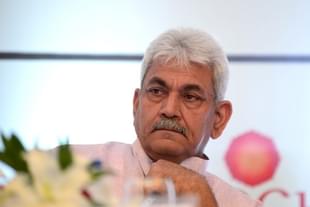News Brief
Major Push To Eco-Tourism: J&K Govt Rolls Out Sustainable Houseboat Policy, Opens 7 New Treks
IANS
Mar 30, 2021, 11:16 AM | Updated 11:16 AM IST
Save & read from anywhere!
Bookmark stories for easy access on any device or the Swarajya app.


In a mega push to promote eco-tourism in the Union Territory, the Jammu and Kashmir Administrative Council, meeting under the chairmanship of Lt Governor Manoj Sinha, on Monday approved the development of seven new trekking routes in various wildlife protected areas by the Wildlife Department in coordination with the Tourism Department.
To sustainably promote tourism in the forest hinterland without disturbing the ecological balance in the protected areas, the Administrative Council also approved the opening-up of the existing infrastructure and resources of the Forest Department, including rest houses/inspection huts, to tourists and wildlife enthusiasts.
The decision would allow the online booking of 29 forest rest houses/inspection huts in Kashmir and Jammu divisions under a common brand and logo from May 1 this year.
The state Forest, Ecology and Environment Department was directed to put in place a user-friendly online portal for booking identified rest houses on a first-come, first-serve basis as per their availability and intake capacity.
It was also directed to refurbish and open another batch of 58 rest houses/huts to tourists by July 1.
These accommodations are located in different forest divisions at the quaint places amid pristine nature. Hitherto, they were reserved for forest officers to be utilised only during official tours in connection with conservation, protection, and management of forests and wildlife.
The Council (AC) also approved the roll-out of policy and guidelines for sustainable operation of houseboats in Dal and Nigeen lakes.
In a bid to preserve the marine eco-system of both the lakes, the new policy aims to regulate the functioning of houseboats moored in Dal and Nigeen lakes by adopting the models of sustainable and responsible tourism.
The policy envisages providing a pleasant experience to tourists and a sustainable source of living to stakeholders while preserving the fragile ecosystem.
Keeping in view the carrying capacities, the tourism department has capped the number of houseboats in both lakes at 910. Under the new policy, the houseboats are required to be registered online subject to the fulfillment of various conservation parameters; within 30 days from the date notification of the policy.
The houseboats and associated structures are required to be fitted with bio-digesters for the scientific treatment of solid/liquid waste as per the approved design of the Lakes and Waterways Development Authority, besides ensuring availability of adequate fire safety equipment along with trained staff to be verified by Fire and Emergency Services Department.
Further, the policy lays down regulations for ancillary facilities like kitchen, lodging, furniture, first-aid, electricity, power back-up, sanitary fittings, and shikara for navigation. It also ensures the availability of minimum basic facilities to the tourists to be categorised on the basis of different classes of houseboats.
The policy includes provisions for undertaking repairs on damaged, dilapidated and abandoned houseboats, and revival of cruise boats and donga cruise.
The Administrative Council also approved the development of new trekking routes in the Bahu Conservation Reserve, the Sudhmahadev Conservation Reserve, the Thein Wildlife Conservation Reserve, the Tral Wildlife Sanctuary-Dachigam National Park-Overa-Aru Wildlife Sanctuary, the Thajwas Wildlife Sanctuary, the Khrew Wildlife Conservation Reserve-Dachigam National Park-Khonmoh Conservation Reserve, and the Khrew Wildlife Conservation Reserve.
With IANS Inputs





